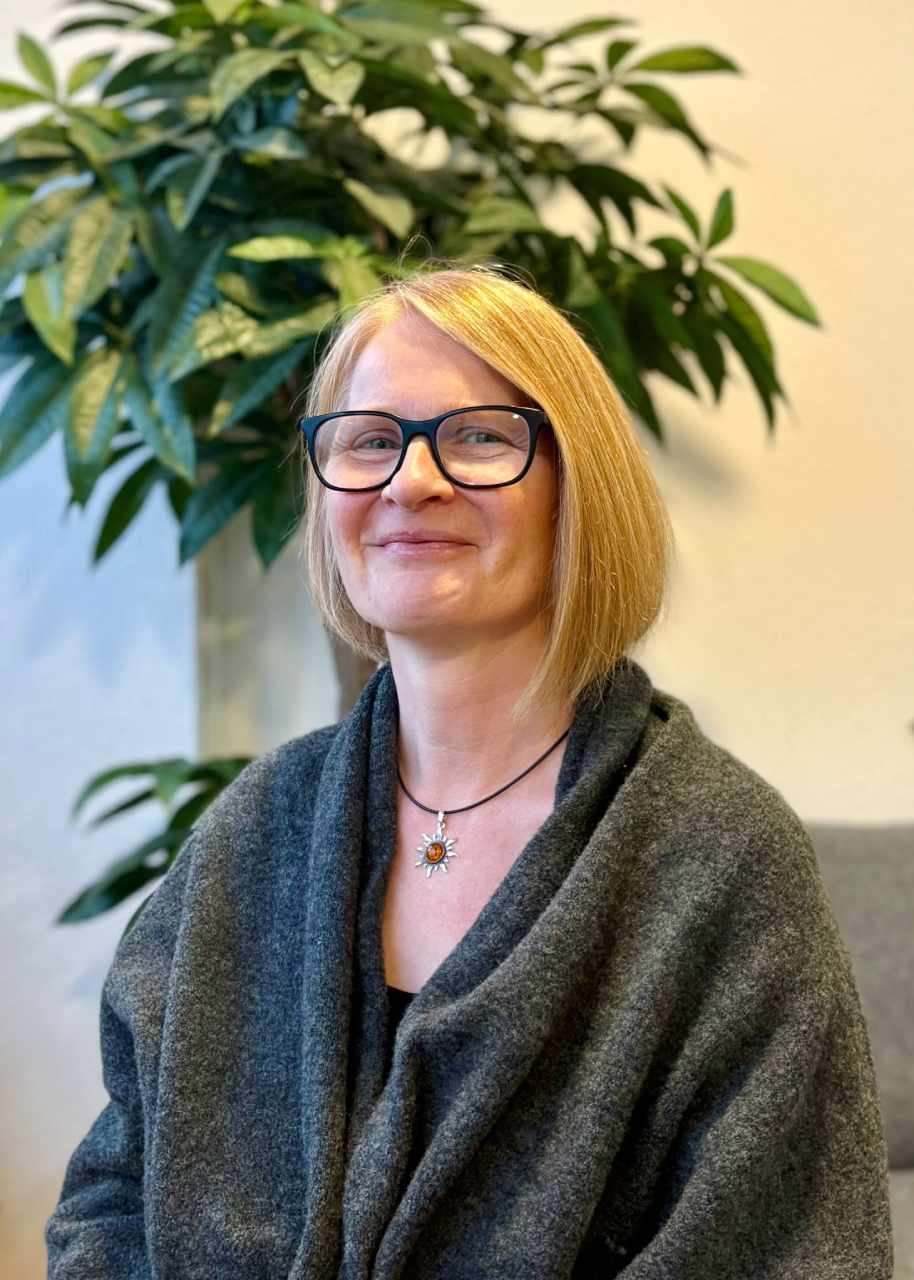
Couples Therapy & Marriage Counseling
Sexual Therapy
Sexual counseling is not only for couples, but also for individuals. It helps you to bring your everyday sexuality into harmony with your desires and longings. In addition to treating sexual disorders, sex therapy is also helpful for relationships, improving the quality of your romantic relationship and, if necessary, enabling further sexual development as a couple. Thus, the clarification of sexual orientation and identity as well as lust and eroticism in old age represent further topics of the couple counselling.
Understanding the causes of sexual problems
Sexual problems are diverse, can occur at any stage of life, and affect both women and men. The most common complaint is lack of desire. This can be a direct result of relationship conflicts. Everyday stresses for the couple, such as stress at work, negative sexual experiences, or pressure from overly high expectations of sexuality, can also cause a lack of desire. Sexuality is a central component of many relationships and influences both individual well-being and the partnership. However, sexual problems and insecurities can be stressful and lead to conflicts.

Sexual difficulties often have complex and multifaceted causes that can include physical, physiological, and psychological aspects, such as stress in everyday life, work-related stress, after surgery, or hormonal fluctuations, e.g., pregnancy. Sexuality is not only a physical experience, but also a form of nonverbal communication, a means of expression through which needs, emotions, and trust become visible. Communication problems in a relationship can have a direct impact on sexuality and indicate that there are unspoken desires or conflicts.
Emotional wounds from the past, unresolved conflicts, or a lack of trust can further strain intimacy. Traumatic experiences such as sexual abuse can also have a profound impact on sexuality and significantly impair well-being in a relationship. Sexual counseling is therefore also aimed at individuals. In addition to treating sexual disorders, sex therapy for relationships is also helpful in improving the quality of your romantic relationship and, if necessary, enabling further sexual development as a couple. Clarifying sexual orientation and identity, as well as desire and eroticism in old age, are further topics covered in couples counseling.
Do you have questions about
Sexual Therapy?
If you have any questions, feel free to call us or send us an email. We will be happy to advise you in a free initial consultation.
How does Sexual Therapy help?
Both couples counseling and sex therapy in Cologne help to overcome acute crises and the frequent loss of communication. Couples counseling in Cologne helps couples to resume communication in an open and respectful atmosphere and to talk about their own sexual desires and ideas. This is often the first and most important step for couples toward a fulfilling love life. As a rule, the first positive developments become apparent after the first session. In everyday life, it is important to stabilize progress and approach further changes with caution.
Sexual disorders have a direct impact on a couple’s relationship. This creates a dense network of interactions that can reinforce each other and need to be sorted out in sex therapy.
In order to address the cause of the sexual problem, it is first important to understand that sexuality is more than just the functioning of the organs. A disorder can be caused by tensions on various levels.
The following areas are the subject of sex therapy:
- Partnership
- How you deal with stress
- Your sexual development history
- Your thoughts on sexuality
- Communication beyond accusations and blame
- Deeper understanding of your own sexual needs and desires
- Develop your own sexual personality
- Discover pleasurable commonalities with your partner
Sexuality is certainly still a taboo subject today, one that people tend to avoid. However, sexual problems often arise in relationships, either on their own or as a side effect of other problems.
As a client, you naturally always decide for yourself which issues you would like to work on. If you are experiencing sexual problems, it is always good to be able to discuss them openly. They are often less complicated than people usually think. We encourage couples to talk openly about them and help clients in couples therapy to get to know themselves better in terms of sexuality, thereby contributing to greater satisfaction in their relationship.
The better you know your own physical needs, stand by them, and can talk about them with your partner, the more likely you are to have a satisfying sexual partnership.
Often, sexual problems are not purely physical problems, they are emotional problems that have a lot to do with your thoughts and feelings. Read more about sexuality.
Fulfilling sexuality – one of the keys to joy of life and self-esteem
Finding intimacy and emotional security
Do you feel that something is missing in your life? Sexuality is much more than intimacy – it brings pleasure, vitality, and strengthens self-esteem. Unfulfilled sexuality can weigh us down, even if we are not always consciously aware of it.
It’s time to change that!
In a safe environment, we offer you space for open discussions and individual solutions. Together, we will find ways to fulfill your desires and needs.
Don’t wait any longer – start living a fulfilling and vibrant life now! Schedule a non-binding initial consultation today.
Talk openly about desires and restore closeness
A fulfilling sex life is based on open and respectful communication between partners. However, it is often difficult to talk about intimate desires, needs, and boundaries, whether due to shame, insecurity, or fear of rejection. But it is precisely this openness that forms the foundation for deeper closeness and intimacy. If communication about changes in sexuality, e.g., in sexual desire, altered sexual dynamics, or personal insecurities, cannot be addressed without concern, this usually quickly extends beyond the physical level and leads to tensions, some of which are unconscious, which in turn have a negative effect on the entire relationship. The result is a growing emotional distance that is not addressed but concealed.

Social taboos and/or past experiences (including those during upbringing) often shape the way sexuality is discussed or whether it is discussed at all. Often, these topics are associated with shame or unpleasant feelings, which is why they are avoided or suppressed. It seems easier to ignore the problems in the hope that they will resolve themselves, while in fact they only lead to further dissatisfaction and insecurity.
The increasing feeling of alienation often makes it difficult for partners to find or restore closeness and tenderness. This is precisely why it is important to seek support as early as possible, if it is clear that communication difficulties exist, in order to prevent emotional alienation. It is important to know that changes in sexuality over the course of a lifetime and thus also over the course of relationships are completely normal and natural, such as during new phases of life, parenthood, or other external stresses. And only through conversations with each other, which can be conducted without feelings of guilt or reproach, can these phases be successfully overcome in the long term. Ultimately, it is important that both partners feel comfortable with their sexuality and work together to find out what is right for them.
Our advantages for sexual counseling at MVZ Cologne
At Odendahl & Brinkmann Couples Counseling, we offer professional sexual counseling in a safe and confidential setting. Our approach is tailored to your individual needs and based on a combination of psychotherapeutic expertise, empathy, and many years of experience. We place particular emphasis on making you feel comfortable and able to talk openly about your challenges. Whether you are dealing with communication problems, emotional distance, or sexual blockages, we will support you in developing new perspectives and strengthening your relationship in the long term.
Our advantages at a glance:
- Individual, solution-oriented approaches
- Discretion and trust are paramount
- Therapy available on site or flexibly online
- Diverse expertise thanks to an interdisciplinary team
Do you have questions about
Sexual Counseling?
If you have any questions, feel free to call us or send us an email. We will be happy to advise you in a free initial consultation.
Costs for Sexual Therapy
- Initial consultation (90 minutes): €170 (excl. VAT)
- Follow-up sessions as a couple (90 minutes): €190 (excl. VAT)
- Follow-up sessions as an individual (50 minutes): €110 (excl. VAT)
Case study for sexual counseling
To illustrate how erectile dysfunction can develop over the course of a lifetime, here is a case study:
Peter is 52 years old, works as a lawyer in a law firm, and is married for the second time. His colleagues would describe him as friendly, careful, and conscientious.
Peter’s parents separated shortly after he was born. He never knew his father, and his mother died when Peter was eight years old. He grew up with his maternal aunt.

During the first eight years of his life, Peter was unable to form a close bond with his mother, as she worked a lot and Peter rarely visited her. She also behaved coldly and distantly toward Peter. During the few days he did visit, he did not stay with her but in a children’s home. Once, when he ran away from there because he wanted to go to his mother, he had to be tied up at night and was not allowed to visit his mother at all from then on. After his mother’s death (from cancer), his aunt took over his custody. Peter describes his adoptive mother as a “tyrant.” He had no real attachment figure in the family. He never felt like he really belonged, or he felt like a burden. He couldn’t confide his feelings and needs to anyone in the family. His strict aunt often behaved in an intrusive manner, and physical punishment was still part of everyday parenting at that time. He found physical contact unpleasant, even disgusting. Sexuality was a taboo subject in the family and was dismissed as sinful or obscene. In his first relationship at the age of 17 with Paula, who was the same age and with whom he was not particularly in love, they did not have sexual intercourse because she did not want to. He broke up with her at the age of 19.

The following year, he began a new relationship with Susanne. Peter was very much in love with Susanne, and they both enjoyed a satisfying sex life. At the time, his girlfriend was still living in another city, so they rarely saw each other, except on weekends. When she moved closer to him and he introduced her to his foster mother, his feelings quickly faded, he withdrew, and at the age of 23, they broke up. The many short relationships that followed, including a marriage, were rather superficial or problematic and often ended in arguments. Peter often felt exploited and misunderstood. The persistent need for closeness and tenderness
prompted him to register on an online portal, where he met his second wife, Sabine. He was attracted by her positive nature and warm affection. The two quickly grew closer, and a satisfying sexual relationship developed into a weekend relationship. After about 10 months, Sabine moved in with him. They continued to have sexual contact, but Peter often found Sabine’s needs too much. However, the partnership worked so well on a personal level that they got married after two years. Shortly after the wedding, Peter developed erectile dysfunction, which got worse over the following year. Peter increasingly suffered from fear of failure and developed various avoidance behaviors, such as going to bed earlier, staying late at the office until Sabine was already asleep, or claiming to be too tired for sex. Despite various medications, the problem did not go away. Sabine perceived his dismissive behavior as rejection. She was afraid that she was no longer attractive enough for her husband, so she got a new hairstyle and bought provocative lingerie. Peter eventually found his wife’s need for closeness unbearable. He felt afraid of her sexual desire and had a guilty conscience. He felt like a bad person
and husband and as a failure. He also suffered from the fact that his own sexual needs, which were still very much present, were not being satisfied. Sabine suffered from the fact that she was unable to arouse him. She was open to new ideas and explored his needs. Nevertheless, they had not had sexual intercourse for two years, but separation was never an option for either of them.
If you have had similar experiences, don’t hesitate to contact us. Help is on the way!

Our sex therapists – empathetic, competent, experienced
Our sex therapists at MVZ Cologne have many years of experience in providing psychotherapeutic support to couples and individuals. They create a safe space where you can talk openly about your desires, needs, and challenges without fear of judgment. Through targeted questions and individualized methods, they help you identify the causes of sexual difficulties and find ways to restore intimacy and closeness. Understanding, respect, and empathetic support are always at the forefront of their work.
FAQs
During couples therapy at our practice in Cologne, sexual issues can also be addressed. This applies to both individuals and couples. Lack of desire, unfulfilled desire to have children in a relationship, affairs, erectile dysfunction, support during coming out, and sexual self-fulfillment are important topics in sexual counseling.
Sexual therapy can be helpful if there are recurring problems or uncertainties in your intimate life that cannot be improved through conversation or your own attempts to find solutions. These include differing needs, lack of desire, fears, pain during sex, or difficulties with intimacy and communication.
Yes, because a lack of sexual desire can have various causes, ranging from stress and hormonal changes to relationship conflicts. Sexual therapy is about understanding the possible underlying causes and working together to find solutions that suit both partners.
It is important that you feel comfortable with your therapist. During the first session, you can find out whether the chemistry is right and whether the therapeutic approach suits your needs.
Yes, even when physical factors play a role, sexual therapy can be helpful. It can help you cope with changes, discover new forms of intimacy, or make it easier to deal with medical treatments or limitations.
Sexual therapy can be done either as a couple or individually. Sometimes it is helpful to first talk about personal issues on your own before looking for solutions together. If the problem affects both partners, participating together can be beneficial.
Yes, sexual therapy can be helpful for people in both monogamous and non-monogamous relationships, as well as for various relationship and identity forms. More important than the type of relationship is that those involved feel comfortable with their sexuality and find solutions to the challenges they may be facing.
Sexual therapy is not about persuading or changing someone, but about finding a way to navigate different needs together. This can be done through open communication, compromise, or alternative approaches.
Yes, sexual therapy can also be valuable for individuals. Topics such as insecurities, sexual identity, self-image, or difficulties with intimacy and attachment can be addressed regardless of whether someone is currently in a relationship.
The process depends on the individual concerns. During the sessions, questions, problems, and possible solutions are discussed. The goal is to gain more clarity and to develop strategies for making one’s sexuality or relationship more positive.



